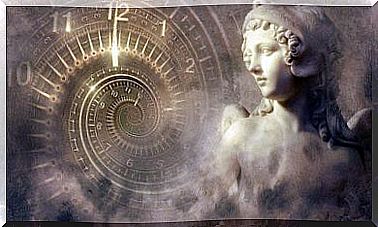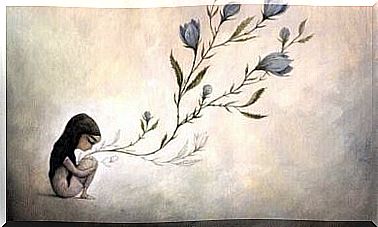The Myth Of Achilles And Vulnerability
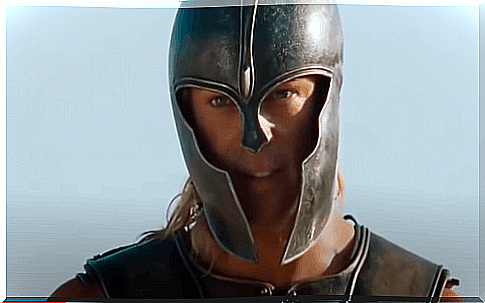
The myth of Achilles presents the prototype of the epic hero. An almost perfect and invulnerable, but also mortal being, one of the main actors in the Trojan War and the Iliad .
Achilles “faster footer”, considered the fastest of men, was also the most handsome of all the heroes who took part in the Trojan War. The character of Achilles is so important that it has even been immortalized in the anatomical tables.
The Achilles tendon, located at the back of the foot, takes its name from this mythological hero who became an object of worship in various regions of the ancient world.
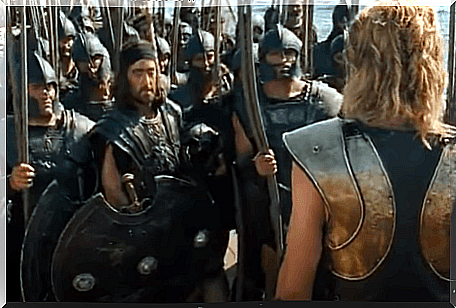
The origin of the myth of Achilles
His mother Teti, a sea nymph and daughter of Nereus, the old man of the sea, was of unparalleled beauty. She was educated by Hera, the wife of Zeus. He wanted her for himself, as did Neptune, god and lord of the oceans.
It is said that the titan Prometheus gave Zeus an oracle, which contained a nefarious prophecy. Thetis would have given birth to a son with great abilities who, as he grew up, would become so powerful that he outclassed his father. With such a prediction, Zeus and Poseidon lost all interest in the girl.
The beautiful nymph finally married a mortal, Prince Peleus. At this point the Achilles myth presents two versions. The best known tells that Thetis, knowing that his son was destined to become a great hero, wanted to make him immortal. So he took him to the waters of the Styx, which led to the underworld, and immersed him. But he held him back by the heel, this part of the body that remained vulnerable.
According to another version, Thetis was anointing the child’s body with ambrosia, the nectar of the gods, and then subjected it to fire and burned the mortal parts of his body. Her husband discovered her and, frightened, took the child away from her by force; the heel remained charred. After this, Thetis fled, abandoning father and son to their fate.
An invincible hero
As a child, Achilles already showed great speed and strength. He also expressed a character that was too harsh and desirous of glory and violence. His teacher was Phoenix, a wise and courageous centaur. In childhood, Achilles met Patroclus, with whom he remained friends throughout his life. Later, he became a disciple of the centaur Chiron, thus completing his training.
To keep Achilles out of the war, his father sent him to the court of King Lycomedes disguised as a woman. He remained there for some time and conceived his only son, Pyrrhus or Neoptolemus. Ulysses discovered this and invited him to accompany him to Troy, to go and get Helen back.
The myth of Achilles tells of the great deeds carried out in war by the hero, who had sown panic among his enemies. His deeds became legendary, especially when he defeated Cieno, son of Poseidon and Troilus, son of Apollo.
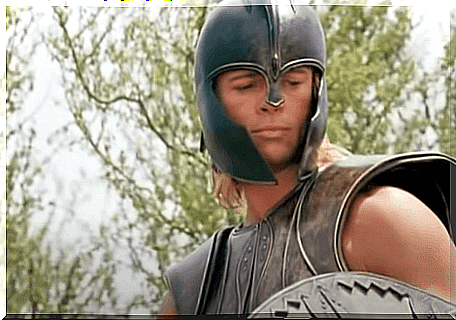
The death of the hero
The Trojan War was long and bloody. Achilles was the strongest and most handsome of warriors. He did not know fear, but on the contrary he was feared by everyone. Many fled even before facing him, as he was considered invincible. These were the circumstances when Patroclus, his childhood friend, fell under enemy iron on the battlefield.
Since then the hero began to fight with more ferocity and without compassion. He wanted to avenge the death of his friend, who died at the hands of Hector. Hephaestus, god of fire and forge, made a special armor to protect him, as the oracle had announced that he would die after the fight with Hector, a fight in which he was victorious.
Some time later, Paris, led by Apollo and knowing the warrior’s only weakness, struck the Achilles heel with a poisoned arrow. The hero died and was mourned for 17 days by his mother Thetis and the nereids, his sisters. Thus was fulfilled his desire to want to live quickly and die young.
